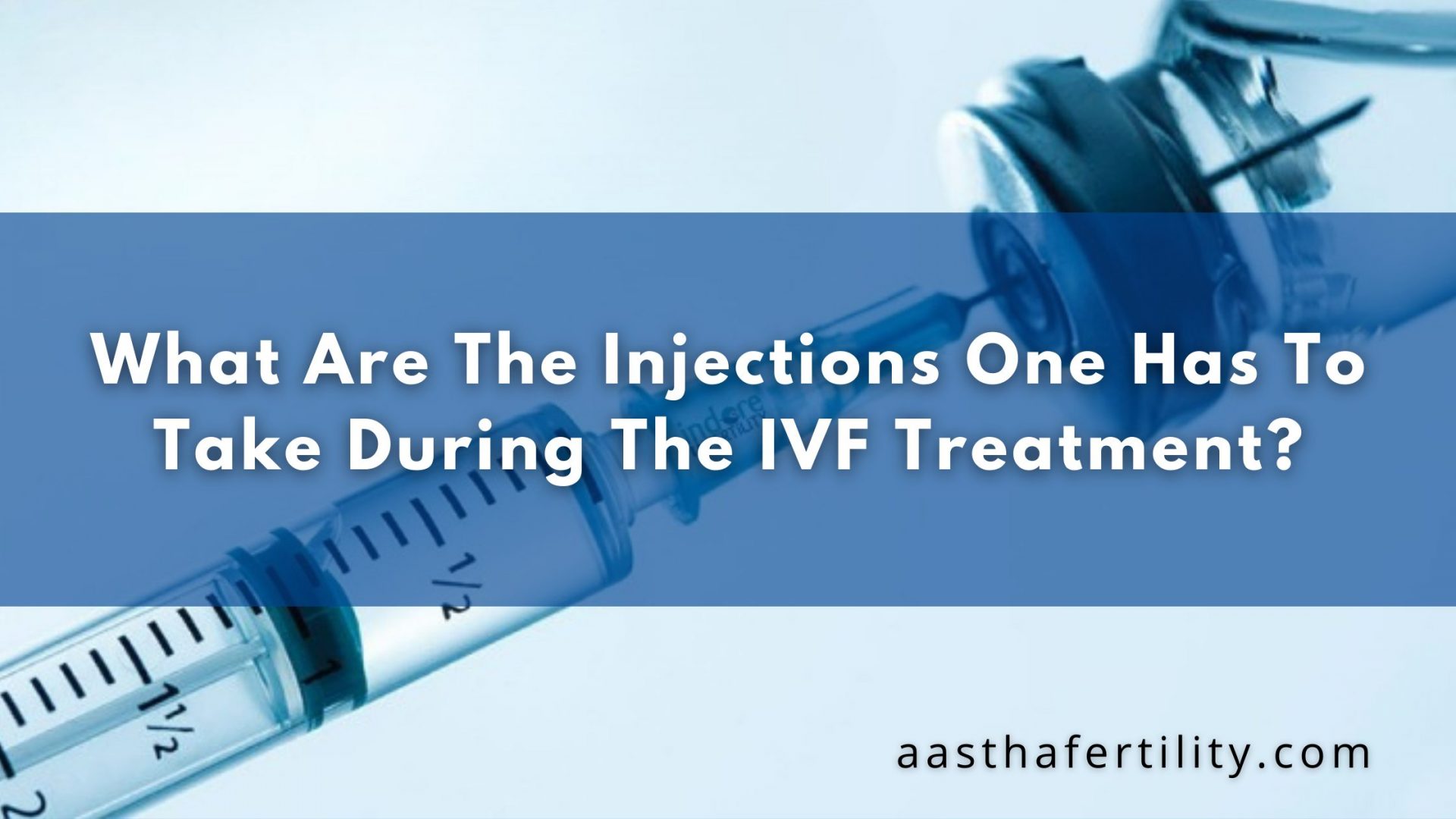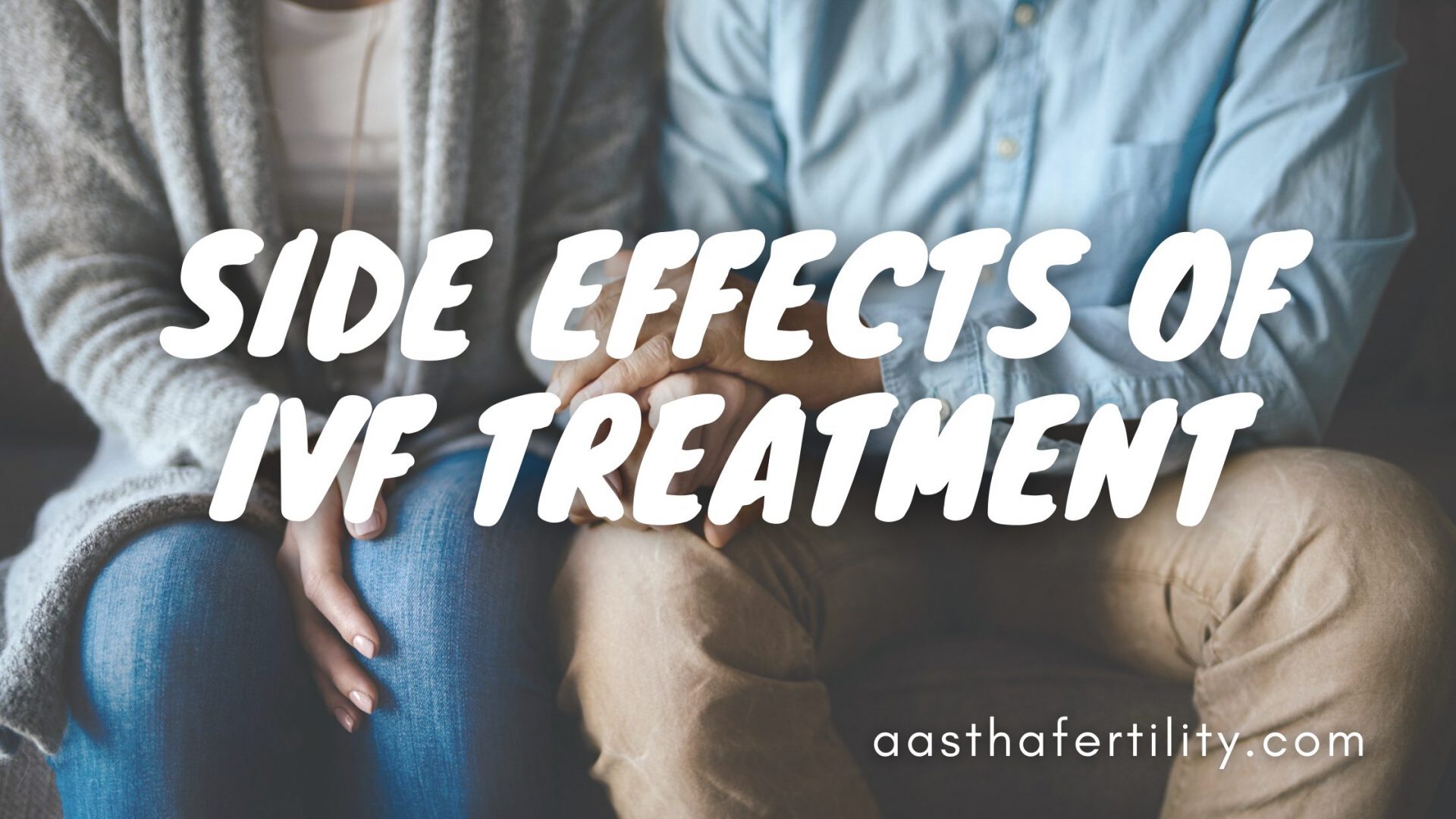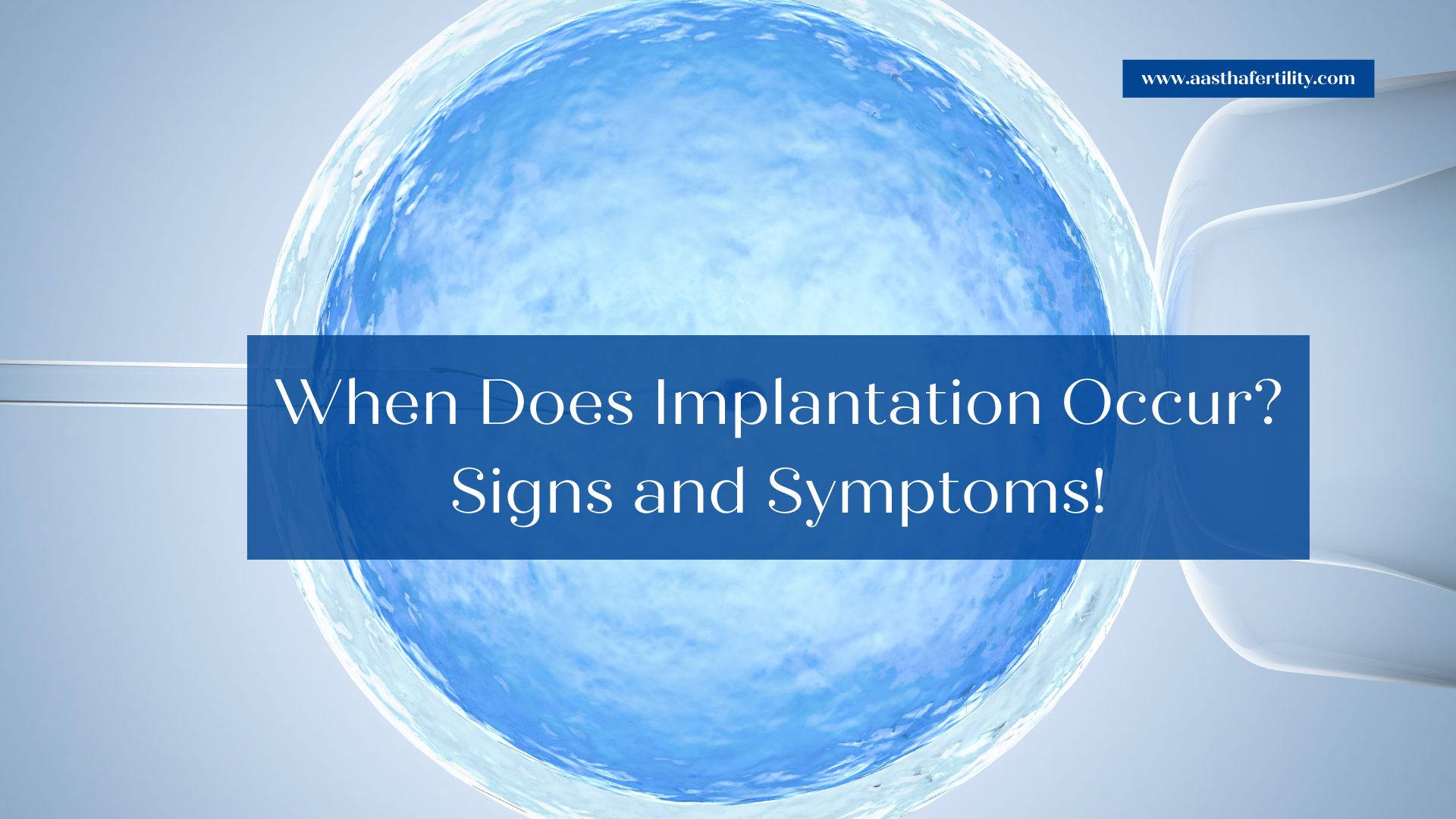Table of Contents
ToggleA medicinal therapy, in-vitro fertilisation, helps people having trouble with natural conception. IVF has become popular since infertile couples get hope and happiness through external medical processes when natural conceiving becomes challenging.
The procedure entails the ovaries’ stimulation to release many eggs. The eggs are then extracted and fertilised with sperm in a laboratory. The eggs and sperm quality, the embryo quantity transferred, and the woman’s health and age are some variables that affect the IVF success rates. According to Aastha Fertility experts IVF Process and infertility treatment experience, patients can expect daily injections administration for about 10 to 14 days when planning to opt for the IVF procedure.
If you’re worried about your IVF journey or constantly searching for the details of IVF injections, then stop thinking, because stress and Infertility are closely related.
Aastha Fertility guides and assists people through this difficult and emotionally taxing treatment process, and have included all the important details about IVF medications and the IVF process for better clarity.
Scroll down to the best answers.
Importance of IVF Injections in The Treatment Journey
IVF injections are administered drugs that aid in ovulation stimulation. These injectable drugs aid in controlling ovulation right from the treatment cycle’s beginning. The healthcare professional or the fertility specialist will observe the oocyte growth, blood work, and estradiol levels till maturity throughout the ovulation period. It is then easier for the specialist to change the dose as needed.
With the help of IVF injections, the ovaries are encouraged to generate more eggs, which can improve the likelihood of fertilised eggs successfully developing into embryos.
People undergoing IVF treatment may experience anxiety and discomfort due to the regular administration of injections. Discussing the potential reactions or any worries with your fertility specialist and enlisting the aid of close relatives and friends for psychological assistance is crucial. The difficulties posed by IVF injections may also be lessened by using coping strategies and self-care techniques.
Understanding IVF Injections
IVF injections treat infertility by stimulating the ovaries to produce more eggs, improving fertilisation rates, and encouraging embryo implantation. Follicle-stimulating hormone (FSH) and luteinizing hormone (LH) injections are given to females to encourage egg development. Blood testing and ultrasound monitoring guarantee optimal development. More progesterone injections are often administered to improve implantation possibilities. Injections used during IVF are essential for effective fertilisation and implantation, which is necessary to get pregnant.
Types of IVF Injections
1. Gonadotropin-Releasing Hormone (Gnrh) Agonists
GnRH agonists are IVF shots that suppress ovulation, enabling medical professionals to schedule when egg ovulation and retrieval occur throughout the treatment cycle. A nasal spray or subcutaneous injection might be used to administer the injection. An hCG trigger injection is administered for egg retrieval preparation once the drug is ceased during the stimulation period.
2. Gonadotropin-Releasing Hormone (Gnrh) Antagonists
GnRH antagonists injections regulate ovulation and stop early ovulation. This injection is administered for a few days, less than the GnRH agonists injection. Once the follicles achieve a particular size, this injection is administered. In addition, an hCG trigger injection is administered for egg retrieval procedure preparation.
3. Follicle-Stimulating Hormone (Fsh)
FSH injection encourages the ovaries to generate more eggs, which improves conception’s likelihood. During the IVF cycle’s stimulating stage, this injection is administered. These injections are administered along with other drugs to regulate ovulation and enhance egg growth. Blood tests and ultrasounds are used to assist in deciding the best time to retrieve eggs.
4. Human Menopausal Gonadotropin (Hmg)
hMG injection stimulates the ovaries for additional egg production, which increases the likelihood of conception. It is also administered during the IVF cycle’s stimulation phase and contains LH and FSH. Based on age, ovarian reserve, age, and drug response, the time of hMG injection varies. The patient’s reaction influences dose and recurrence.
5. Human Chorionic Gonadotropin (Hcg)
The hCG injection starts ovulation for egg retrieval preparation after ovarian stimulation. It enables the ideal period for egg fertilisation. The duration is normally a single administration based on age and medication response.
Duration of IVF Injections: How Many Days?
Ovarian reserve, response to the medications, and the woman’s age are some facts that affect the duration of IVF injection. The typical dosage for each IVF injection is as follows:
- GnRH or Gonadotropin-releasing hormone agonists – 7-10 days
- GnRH or Gonadotropin-releasing hormone antagonists – 5-7 days FSH or Follicle-stimulating hormone – Ten to twelve days
- hMG or Human menopausal gonadotropin – 10-12 days
- hCG or Human chorionic gonadotropin – A single shot is administered 36 hours before the egg is retrieved.
Monitoring the patient throughout the IVF cycle process is crucial to check whether any modification or alteration in administering injections is required. Blood tests and an ultrasound scan are usually performed to monitor the ovarian response, and if necessary, the IVF injection schedule is modified. These modifications avoid OHSS or ovarian hyperstimulation syndrome and promote optimum follicular development.
Other Common Concerns About IVF Injections
Some common concerns about IVF injections are:
- Abdominal Pain
- Headaches
- Mood swings
- Hot flashes
- Bloating, and other side effects.
Besides, patients are concerned about the cost of IVF injections and are usually emotionally impacted while getting the treatment.
Therefore, consulting your fertility specialists will help you overcome the disappointment, anxiety, or stress brought on by the IVF injections and the process. They will guide you about dealing with the adverse reaction and the cost of the IVF treatment. It makes the patient comfortable when they know the process and what’s coming during the procedure.
Conclusion
IVF injections encourage the ovaries to generate more eggs, a crucial component of fertility therapy. It’s important to talk to your fertility specialist about your worries, whether related to pain, side effects, expenses, or other factors.
We recommend people getting IVF injections or planning to consider IVF treatment, Contact us to get in-depth details about IVF injections, the success rate of the treatment, and prices.
Frequently Asked Questions
1. How long is the ovarian stimulation phase in an IVF cycle?
The ovarian stimulation phase in an IVF cycle is 8-14 days.
2. How many days do I need to take follicle-stimulating hormone (FSH) injections?
8-14 days.
3. When do I start taking gonadotropin-releasing hormone (GnRH) agonists or antagonists during my IVF cycle?
Fourteen days before the menstrual period cycle.
4. How many days do I need to take GnRH agonists or antagonists to prevent premature ovulation?
Approximately two to four weeks.
5. When is the human chorionic gonadotropin (hCG) “trigger shot” administered during the IVF cycle?
36 hours before the egg is retrieved.
6. Can the duration of injections during the IVF cycle be adjusted based on my response to the medications?
Yes, the duration of injections during the IVF cycle is adjusted based on your response to the medications.
7. How do I know if the injections are working effectively during my IVF treatment?
Regular blood tests and ultrasound scan monitoring can help the fertility specialist determine the hormonal levels in the blood and the size and number of follicles. The dosage and frequency are adjusted based on the findings to make embryo development and fertilisation successful.
8. Are there any side effects associated with the injections used in IVF treatment?
Certain adverse reactions may be noticed after IVF injections based on the medication response of the individuals. Some may experience hot flashes, abdominal pain, headaches, mood swings, inflamed injection site, etc.
9. What happens if my ovaries don’t respond well to the stimulation medications?
The injection duration and frequency are adjusted if the ovaries don’t respond well to the IVF medications.
10. How can I minimise discomfort while administering IVF injections?
You can apply ointment to the affected area, heat, or relax your muscles to minimise discomfort. Also, you can talk to your fertility specialist to change the injection site or get it through a small needle.





Leave a comment